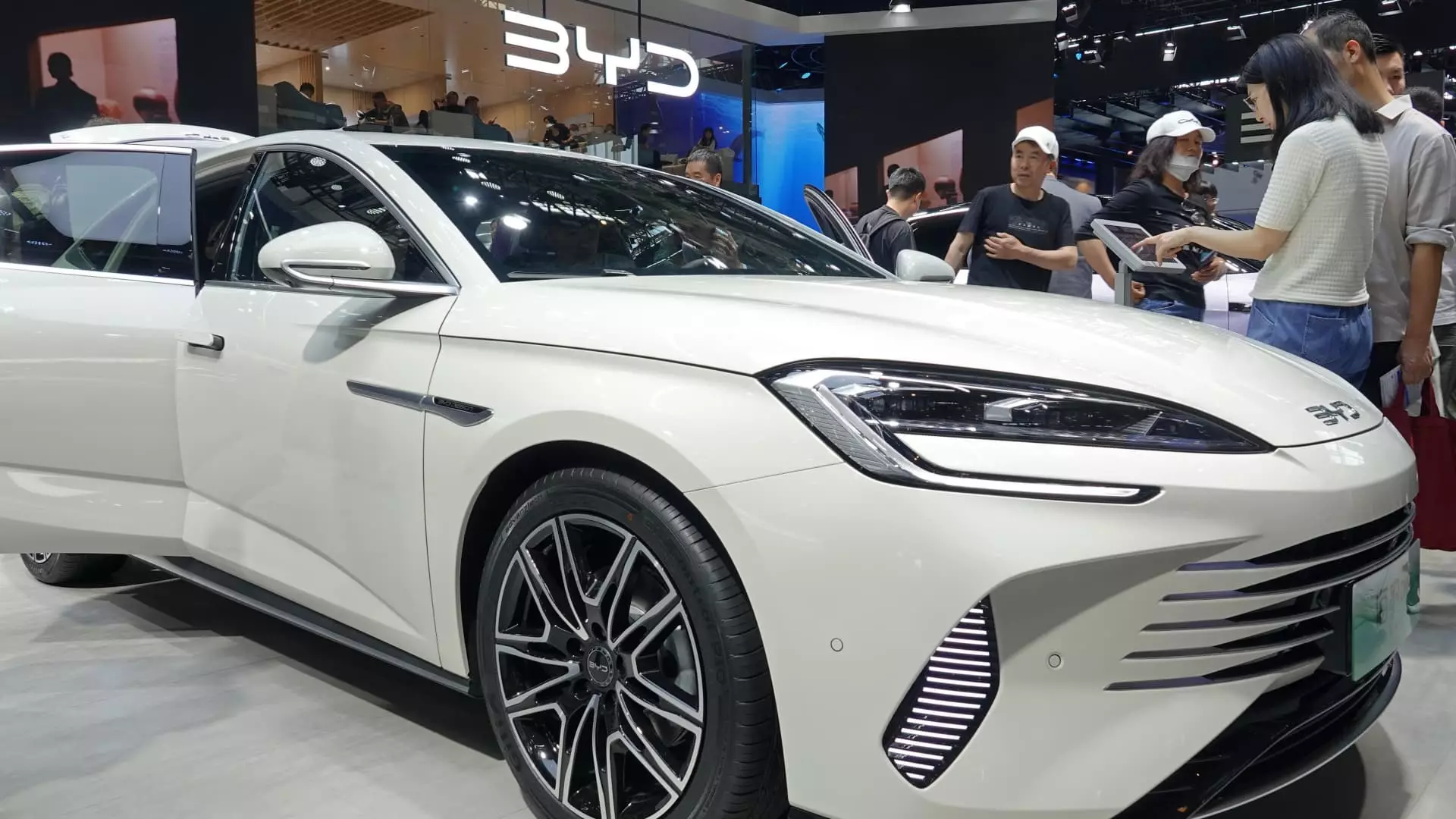The stock market reaction to the European Union’s announcement of higher tariffs on Chinese electric vehicles (EVs) was evident on Thursday morning. Shares of Chinese EV companies mostly surged, with market indices such as Hong Kong’s Hang Seng index rising by 1.23% at the opening bell. The gains were mostly driven by the performance of EV stocks, particularly companies like BYD, Geely, Nio, and Li Auto. While BYD emerged as the top gainer on the HSI, jumping 8% during morning trade, Geely was also up by about 4%. Nio and Li Auto saw their shares climb by 1.75% and 2.67%, respectively. However, state-backed SAIC was the outlier, experiencing a decline of more than 2% in response to the news.
The EU’s decision to impose additional tariffs on Chinese EV players with a significant presence in Europe had a varied impact on different companies. BYD, Geely, and SAIC were among the manufacturers sampled in the EU investigation, with each facing different levels of extra duties. BYD will be subject to additional tariffs of 17.4%, Geely will bear an extra 20% duty, and SAIC will have to pay additional duties of 38.1% – the highest among the three. These tariffs are in addition to the standard 10% duty already imposed on imported EVs. Other Chinese EV firms that cooperated in the investigation but were not sampled would face 21% in extra tariffs, while those that did not cooperate would be subjected to 38.1% in additional duties, according to the EU commission.
The EU justified its decision by citing “unfair subsidization” of Chinese EV makers, which allegedly posed a threat of economic injury to the EU’s own EV industry. Compared to the U.S.’s stringent tariffs on Chinese EV imports – recently increased to 100% by the Biden administration – the EU tariffs were considered more moderate. Market analysts like Vincent Sun from Morningstar noted that the additional duties were in line with market expectations of 20%-25%. The EU launched the probe in October, and the provisional duties will be enforced from July 4 if discussions with Chinese authorities do not lead to a resolution. Definitive measures will be implemented within four months of imposing provisional duties, as per the commission’s statement.
The impact of the tariffs on different Chinese EV manufacturers varied based on their level of investment and presence in Europe. While SAIC received the maximum tariff rate of 38.1%, it was speculated that the EU’s objective was to incentivize the automaker to establish a production facility within Europe. Joseph Webster from the Atlantic Council’s Global Energy Center suggested that SAIC’s limited footprint in Europe and failure to select a site for its European production facility could have influenced the EU’s decision. On the other hand, companies like BYD and Geely, which have substantial investments in Europe, may be better positioned to navigate the challenges posed by the additional tariffs.
The EU’s move to impose higher tariffs on Chinese EV players reflects the increasing scrutiny and competition within the global EV market. While the impact on different companies may vary, the overall objective seems to be promoting fair competition and encouraging investment within the EU’s own EV industry. Chinese manufacturers will need to carefully strategize and adapt to these changing market dynamics to maintain their competitiveness in Europe and beyond.


Leave a Reply